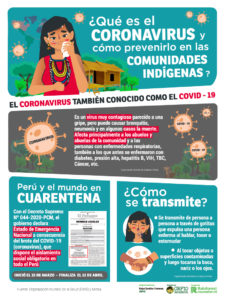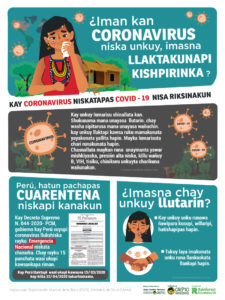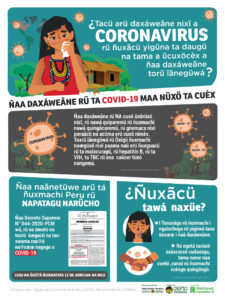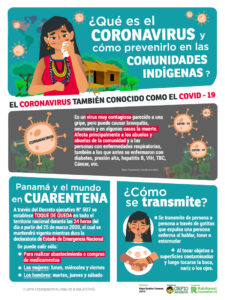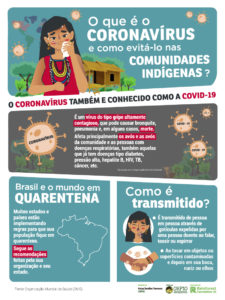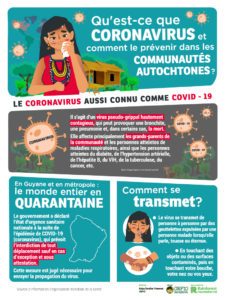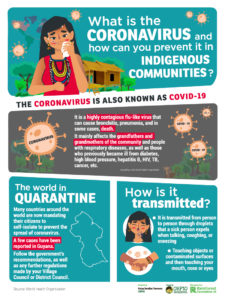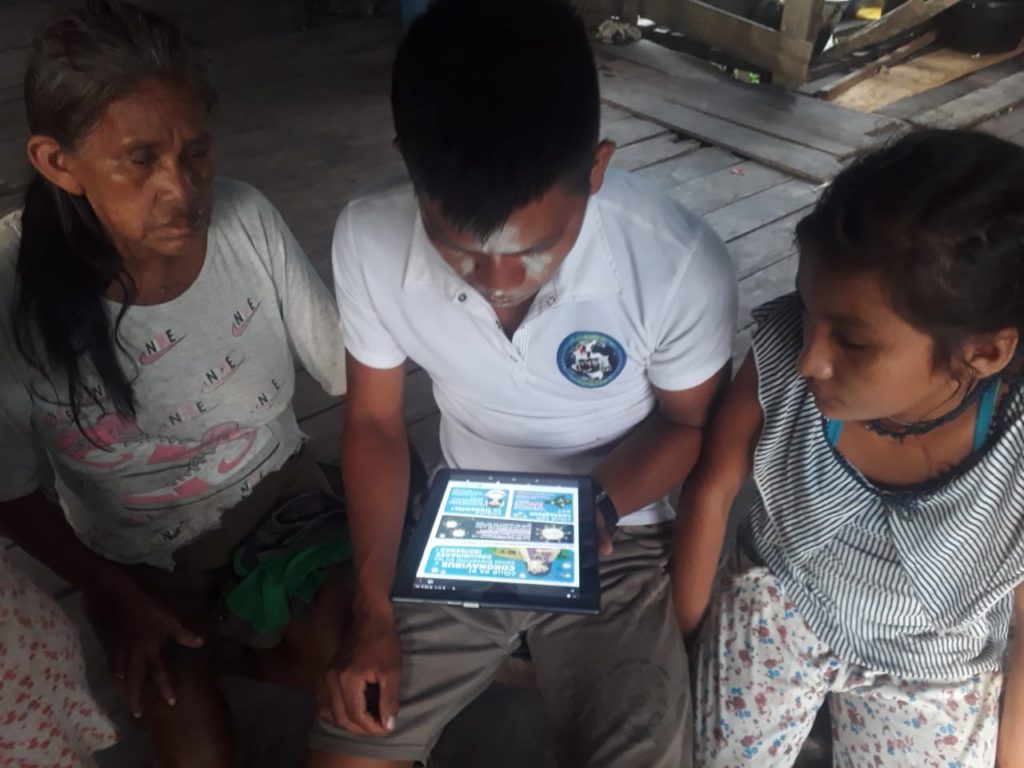
Indigenous peoples across the Western hemisphere are mobilizing quickly to inform their communities of COVID-19, repurposing existing networks and technologies to share information from national and international experts.
Indigenous communities are vulnerable to disease due to their historically marginalized economic and social status, their remote location, and, all too often, the lack of easy access to medical facilities. Where there is access, medical facilities can be under-served and under-resourced. As a result, under normal circumstances, community members often do not receive adequate treatment. Many community members suffer from underlying, chronic conditions such as diabetes, malaria, dengue, dysentery and malnutrition, among others. Meanwhile, they can also experience a naturally low immunity to exotic diseases. Traditional customs of communal living and eating further increase the risk of indigenous peoples contracting and spreading COVID-19.
Informing citizens of the dos and don’ts to prevent infection is key to contain the spread of the virus. In much of Latin America, however, useful and verified information doesn’t always reach vulnerable and remote populations, including indigenous peoples, and misinformation is in abundance.
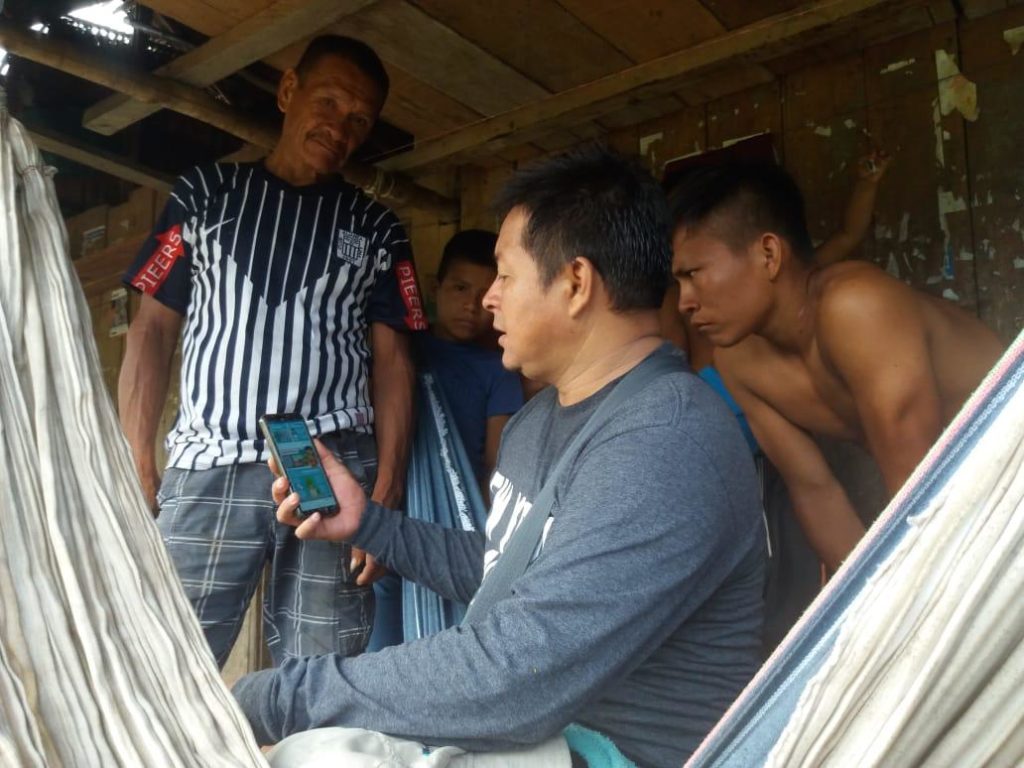
To address this, indigenous peoples are taking proactive measures to inform their communities and prevent the spread of COVID-19. In Peru, the Indigenous People’s Organization of the Eastern Amazon (Organización Regional de los Pueblos Indígenas del Oriente, or ORPIO) prepared their own culturally-relevant infographics to reach the 430 member communities of ORPIO across the northern Amazonian region of Loreto.
Distribution of these infographics have been accelerated across the region in particular thanks to the existing network of community-based forest monitors that Rainforest Foundation US supported ORPIO to design and implement. In the absence of printing facilities, community monitors have downloaded the infographic onto the phones and tablets that they normally use to track deforestation and are now using them to present the information to members of their communities.
“Thanks to this network of monitors implemented with the support of Rainforest Foundation US, we have managed to inform the most remote indigenous communities. This information has been collected from official sources such as the World Health Organization and the Peruvian government’s Ministry of Health. Though ORPIO is not a health institution, but an indigenous organization, we are organizing to inform ourselves to confront this pandemic together.”
— Jorge Pérez Rubio, President of ORPIO
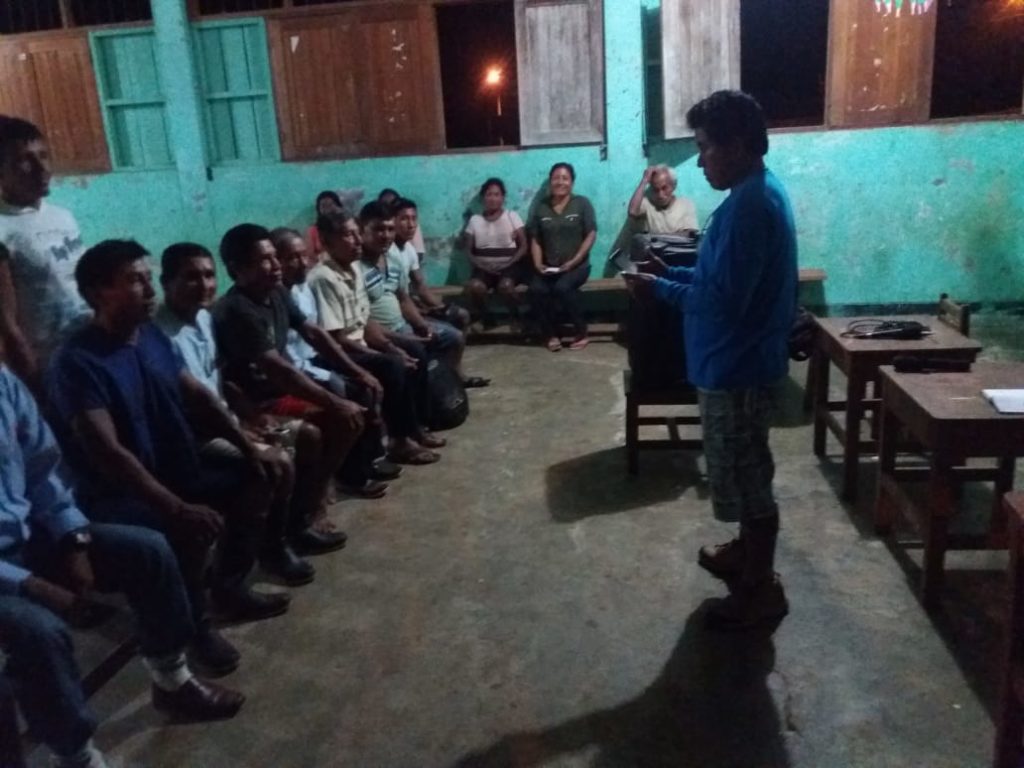
Rainforest Foundation US is now supporting the translation of the infographic into other languages to reach indigenous communities in other countries across the Amazon and Mesoamerica. The infographic is available below in a number of languages. This list will be updated as new country versions are developed.
If you are an indigenous people’s organization or network and find that these infographics could be useful for outreach to communities in other countries or languages, please do not hesitate to contact [email protected].

